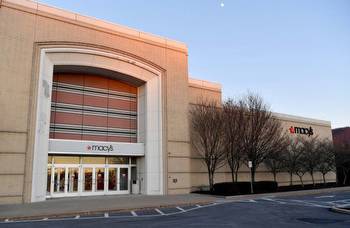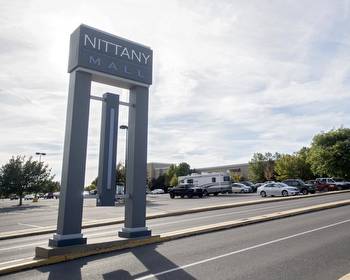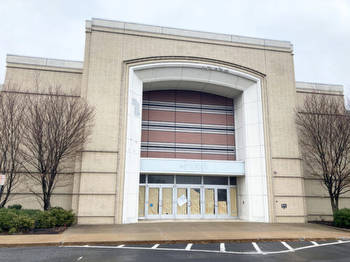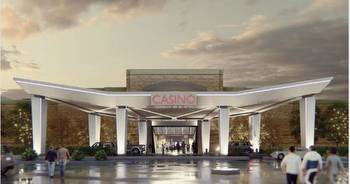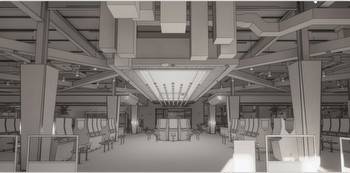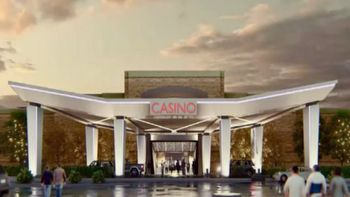Letters: Local Police Need Radar; Rein in School Taxes; Casino Opposition
Our local police departments need your help. Pennsylvania is the only state which does not provide
local police with radar to enforce speed limits. Residents continue to express concerns about excessive
speeding on local streets while our police are handcuffed with antiquated timing devices.
House Bill 606, which authorizes local police use of radar, has been bounced around the PA House
Committees since the spring of 2021 after passing the PA Senate. Radar technology is more versatile
than a stopwatch, VASCAR or NRAD since it can easily be moved from one neighborhood to the next
and only needs one officer to operate it, helping to reduce the manpower assigned to enforce speeding.
House Bill 606 requires extensive training, operating radar from a marked vehicle, and prohibits radar
to be used to time vehicle speed within 500 feet after a speed limit sign that indicates a decrease in
speed. Further, a driver can’t be convicted on evidence obtained with the radar gun in an area where the
legal speed limit is less than 55 mph if the recorded speed is less than 10 mph in excess of the legal
speed limit.
The bill also has a statement regarding the issue of revenue, stating that the primary use of the radar
gun is for traffic safety purposes. The bill limits a department’s share of revenue generated from speed
enforcement citations by a device to no more than 10% of the total political subdivisions budget, the
excess sum will be remitted to the Department of Revenue Treasury Department. On a typical speeding
ticket, the municipality receives $12.50. Here’s a real example.
Over the last five years (2017 to 2021), Ferguson Township Police have stopped over 10,000 vehicles
and issued approximately 3,000 citations. Using those figures with the rough $12.50 per ticket, that’s a
whopping $37,500 for a five-year period. If a hearing is requested, the municipality loses money since
it typically pays officers three hours of overtime to appear at the hearing. Hardly a revenue enhancer!
Please contact House Majority Leader Benninghoff and Representatives Conklin, Irvin and Borowicz
and ask them to move House Bill 606 to the floor for a vote to improve neighborhood safety.
Mark Kunkle,
Ferguson Township
Property Taxes Already Too High
Once again the State College Area School District has proposed to raise property taxes up to the maximum without it going to a vote. As someone on a fixed income, I am currently paying more than what a mortgage payment would be for property which I own and this is ridiculous.
The SCASD needs to get its act together and exercise some fiscal responsibility and balance their budget. I cannot afford to continue to pay such ridiculous sums of money each year so that they can continue to spend irresponsibly. A school district should not have the power to levy taxes. That responsibility should fall to the legislative body. The taxes we pay here are absolutely absurd.
Ray Bilger
College Township
No Casino Here
Early in her marriage, my cousin lost her beloved husband, Danny, to gambling addiction. His illness resulted in heartbreak, divorce, financial ruin and Danny’s early death. One anecdote doesn’t prove a rule. But I challenge anyone to find stories of people’s lives that have been saved, let alone uplifted, by gambling.
Our region values education and wholesome recreation. There is not one valid national study that states that this casino would contribute to those without incurring social and economic losses. On the contrary, stories similar to ours are terribly common.
Since the College Township Board of Supervisors’ inexplicable decision to set this casino in motion, public sentiment has been overwhelmingly negative. Centre Region polling, letters and petition signatures are running over 9:1 against the casino. While we welcome responsible and appropriate new development, this does not qualify.
The Nittany Mall will find new and better tenants as is happening at similar underused malls around the country. Our business and community members are actively planning a better future for the Mall: a future with strong local roots. If a Penn State trustee is looking for a place to develop a casino, we suggest his own community.
Please let us continue to be proud of our region. Please don’t allow this casino to proceed.
SayNoCasino.org to see how you can be involved.
G. Randolph Hudson,
Ferguson Township
Casinos Sell Addiction
A friend recently asked why I oppose the Nittany Mall Casino despite allowing people to make their own choices regarding skills games and the lottery. The answer is primarily a question of scale.
One Canadian study found that 75% of people who gamble in casinos are casual players who can lose a few dollars and walk away without suffering serious problems, but these players contribute only 4% of net gambling revenue. A summary of research on casinos summarizes the overall findings: “Evidence from scholarly studies on the relationship between casino income and problem gambling consistently and robustly points to the conclusion that casinos disproportionately rely on problem and pathological gamblers for their revenue base.” (https://stoppredatorygambling.org/wp-content/uploads/2013/09/2013-Why-Casinos-Matter-FINAL.pdf pp. 18, 37-40)
Put simply, casinos are industrial-scale money extraction factories. Casino owners gain a veneer of respectability by providing food and entertainment to casual gamblers, but they make the bulk of their money by addicting a small portion of the community to gambling and then fleecing those people for everything that they have. Without gambling addicts, most casinos would be unprofitable. A casino’s business model is principally the same as that of a drug dealer – to make lots of money by selling an addictive product that exploits a small portion of the population. Casino operators are simply more sophisticated than most illegal drug dealers in that they can provide the government with a cut of their profits (“i.e. gambling tax revenues”) to legally bribe government officials to look the other way.
Modern casinos create a controlled environment that keeps gambling addicts at their gaming machines until they have run out of money. They intentionally have no windows or clocks to prevent people from realizing how long they have been gambling. The gaming machines are laid out in a maze-like arrangement to make it difficult for people to leave. The games themselves are engineered to use lights and sounds to create the impression that everyone around you is playing and winning – even though this is obviously not the case. Casinos also often give away free alcohol to reduce peoples’ inhibitions and impair their judgement about how much money they can afford to lose. (https://www.feelingvegas.com/why-casinos-dont-have-clocks-windows/)
Other forms of gambling like skills games and the lottery do not control the gambling environment in these ways, and because of this difference hardly anyone has lost their home or their life’s savings playing these types of games – however, many people who gamble at casinos have lost both. Even though I could visit a casino without losing everything that I have, I will not do anything to provide a veneer of respectability to the casino owners who want to exploit my neighbors – especially while there is still a way to prevent this casino from being developed.
Please e-mail the Pennsylvania Gaming Control Board at [email protected] and ask them to deny the license for the proposed Nittany Mall Casino, sign the online petition opposing the casino at https://www.ipetitions.com/petition/saynocasino, and visit https://SayNoCasino.org
Andrew Shaffer,
State College
Casino Would Harm Local Economy, Residents
Proponents of the proposed Nittany Mall casino claim that it will bring jobs, tourism and tax revenues to State College, and therefore will be good for our local economy. Reality, judging from the experience of communities like ours who have tried this—is the opposite. This casino would draw primarily Centre County residents and would therefore drain money out of our local economy, profiting an outside company while cutting the legs out from under local small businesses that are already struggling amid the realities of post-pandemic life.
Proponents of this casino claim that it is a desirable form of entertainment that would provide harmless fun for our area. The reality is that:
– This casino would gain its profits primarily at the expense of those in State College who can afford it the least, increasing the economic inequality gap in our area by holding out the false hope of fast wealth to people who can’t afford what they will certainly lose.
– Thousands of Penn State students in their formative years would now have a convenient opportunity to experience the addictive high of casino life, teeing up another generation for problem gambling and a lifetime of financial hardship and personal tragedy.
– Children in Centre County like mine (I have young kids) would grow up with the casino’s marketing messages all around town teaching them that looking for wealth from slot machines is normal, shaping their imaginations and expectations about life and making them more susceptible to problem gambling later in life.
In the course of my work I am sometimes responsible to help and give counsel to people who are poor and struggling to build a financial secure and personally independent life. When I think of them, I imagine how destructive the draw of this casino could be for them—offering them the prospect of quick money, but much more likely draining their fragile economic means and removing yet another barrier to sliding into the life of addiction and crime they’re trying to escape. Thousands of Centre County’s most vulnerable could be seriously harmed if this casino opens.
The Pennsylvania Gaming Control Board must be urged not to listen to the spin that the business interests are putting on this casino project, trying to make it seem like a good thing for our community. Many surely think the casino would be a harmless and fun addition of local color or have been wrongly persuaded that it would be good for the local economy. I and many others like me in Centre County do not agree. We are profoundly concerned because the opening of this casino would be a turning point in our community with severe economic and community consequences for generations. Let’s stop these problems before they start. Make your voice heard in opposition to the Nittany Mall Casino license.
Zachary M. Simmons,
Ferguson Township
StateCollege.com Breaking News
Receive all the latest news and events right to your inbox.









